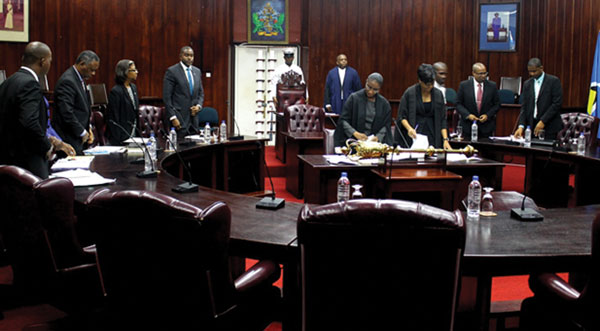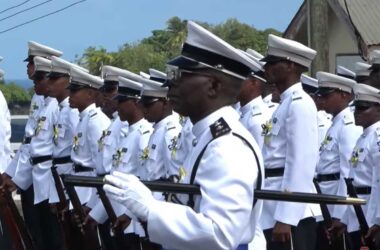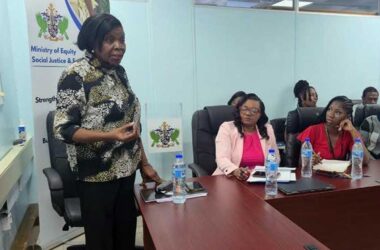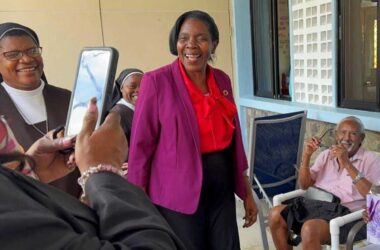DRAMA unfolded on the second day of the debate on the 2017/2018 Appropriations Bill in the House of Assembly, starring Prime Minister Allen Chastanet, Opposition Leader Phillip J. Pierre and House Speaker Leonne Theodore-John.
The spectacle was about whether documents purporting to be the agreements signed between the government and Desert Star Holdings (DSH), presently circulating on the Internet, should be accepted by the House.
The matter forced a 15-minute suspension of the House giving Theodore-John enough time to clarify her earlier decision to allow the documents to be made documents of the House.
It all began when Pierre challenged Chastanet to make the DSH agreements documents of the House if he was certain they would benefit the country.
“If the document you signed is such a good one, make it a document of the House. Why can’t you make the DSH agreements or agreement a document of the House?” Pierre challenged Chastanet.
There are suggestions that the agreements circulating on social media are the DSH agreements and were leaked by sources within government.
Prime Minister Chastanet had on more than one occasion referenced the leaked documents but never has he authenticated them or referred to them as phonies. The documents have been heavily quoted in the media, both mainstream and social, without eliciting a comment from the Prime Minister as to its authenticity or lack thereof.
Pierre told the House he was going to quote from the documents seeing that they have the purported signatures of Chastanet and the Chairman of DSH, Teo Ah Khing. He went on to make the agreements documents of the House after the Speaker suggested that he did so if he wished.
Chastanet challenged the suggestion, stating that unless Pierre could prove the authenticity of the documents, then he could present them as documents of the House.
“You just cannot take a document from the Internet and claim it to be an authentic document and bring it to this Honourable House. He cannot do that,” Chastanet challenged.
Said Chastanet: “Government’s position has been that we have signed a confidential agreement and we have not acknowledged in any way that the documents that are in circulation are correct.”
By the time all said drama was taking place, the documents submitted by Pierre, were being copied for distribution to each member of the House as suggested by the Speaker.
The situation appeared ticklish and put Theodore-John somewhat in a tight spot. However, correspondence between her and the Prime Minister resulted in the latter calling for a short adjournment of the House, easing tensions a bit.
On the resumption of the House proceedings, the Speaker put the matter beyond debate by ruling that the documents can be laid in the House. Her verdict was based on a book she claimed was an authority on such matters.
Quoting from page 447 of the book she said: “There is no rule to prevent members not connected with the government from citing documents in their possessions, both public and private, which are not before the House, even though the House will not be able to form a correct judgement from partial extracts.”
She quelled the argument by stating thus: “The Honourable Leader of the Opposition can lay his documents. However, we have to understand we live in a digital age (and) the documents being on the Internet would be a public document. That being said does not mean that this attests to the veracity of the documents, but the documents will be laid and will be accepted.”







![Amy Stephen [Photo credit: Community Tourism Agency]](https://thevoiceslu.com/wp-content/uploads/2026/01/Amy-Stephen-feat-380x250.jpg)







